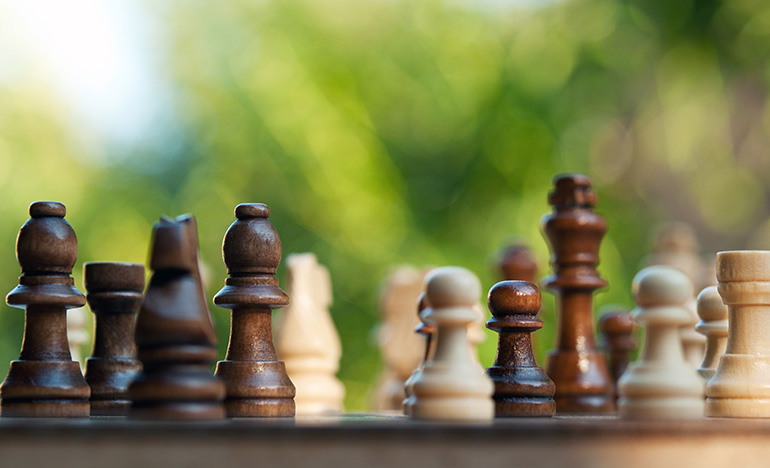
Read: Romans 8:18-25 | Bible in a Year: Psalms 68–69; Romans 8:1-21
We, according to His promise, look for new heavens and a new earth in which righteousness dwells. —2 Peter 3:13
In high school I took pride in my ability to play chess. I joined the chess club, and during lunch hour I could be found sitting at a table with other nerds, poring over books with titles like Classic King Pawn Openings. I studied techniques, won most of my matches, and put the game aside for 20 years. Then I met a truly fine chess player who had been perfecting his skills long since high school, and I learned what it is like to play against a master. Although I had complete freedom to make any move I wished, none of my strategies mattered very much. His superior skill guaranteed that my purposes inevitably ended up serving his own.
Perhaps there is a spiritual picture for us here. God grants us freedom to rebel against His original design, but even as we do so we end up serving His eventual goal of restoration (Rom. 8:21; 2 Peter 3:13; Rev. 21:1). This transformed the way I view both good and bad things. Good things—such as health, talent, and money—I can present to God as offerings to serve His purposes. And bad things—disability, poverty, family dysfunction, failure—can be “redeemed” as the very instruments that drive me to God.
With the Grand Master, victory is assured, no matter how the board of life may look at any given moment.
Father, I’m grateful that in all of life Your purposes are being accomplished. May I learn to have open hands—to accept whatever You give to me and whatever You take from me. Help me to trust Your heart.
When we can’t see God’s hand, we can trust His heart.
INSIGHT:
As followers of Jesus we look forward in hope to the new heaven and the new earth where we will spend eternity in loving adoration and communion with the triune God and with each other. Today’s passage from Paul’s letter to the Romans suggests that reconciliation and restoration—the undoing of all the damage of sin—is not limited to humanity. God’s good creation (see Gen. 1) is also groaning under the weight of sin and is waiting for the ultimate realization of salvation provided by God through Christ. J.R. Hudberg
No comments:
Post a Comment